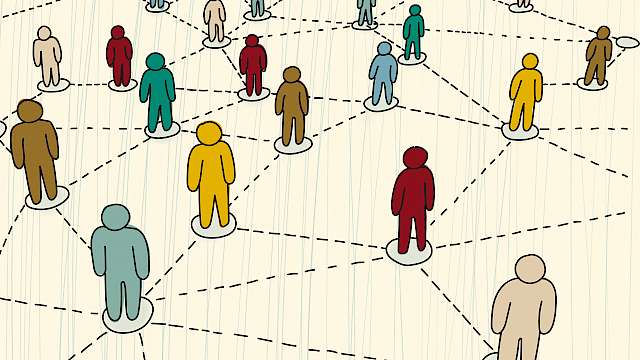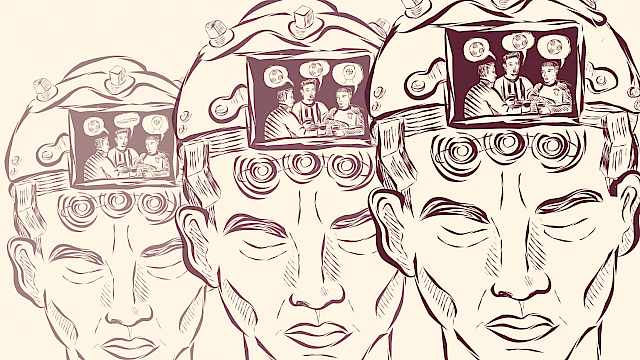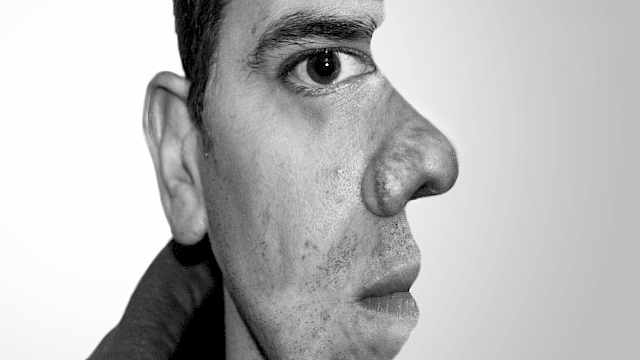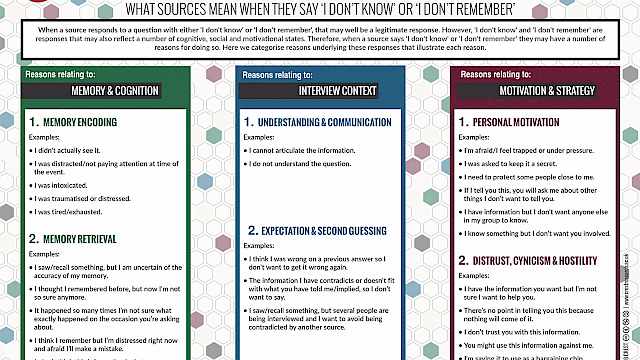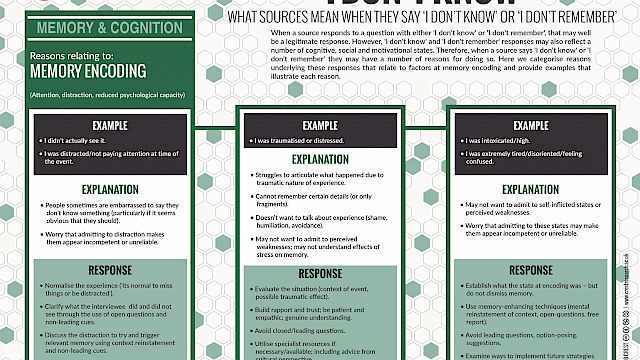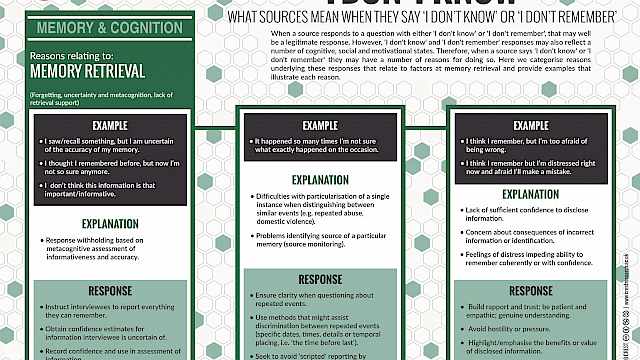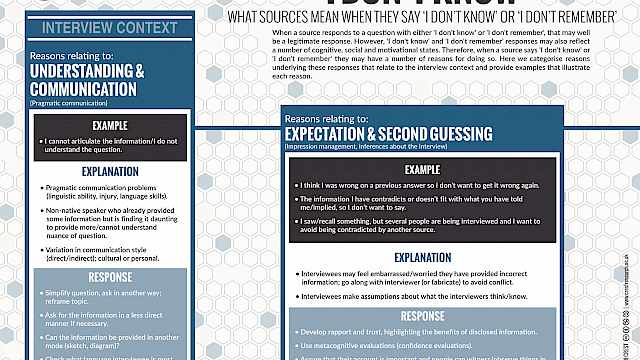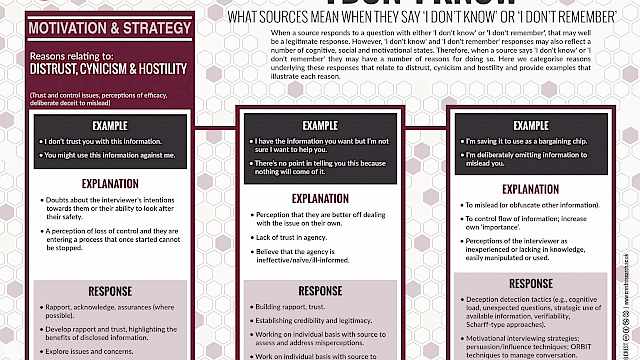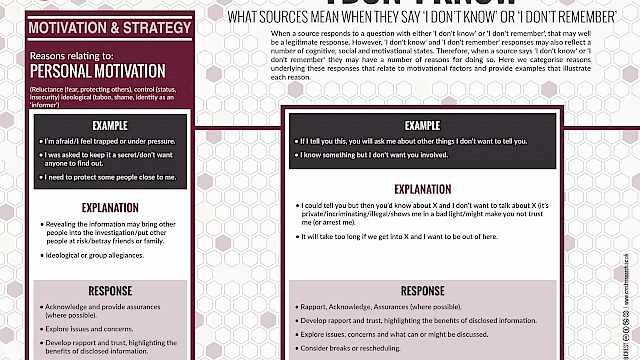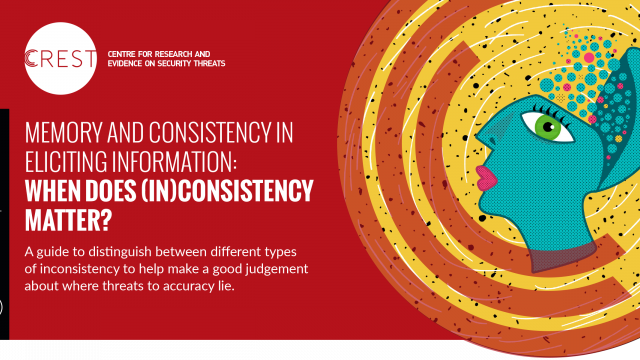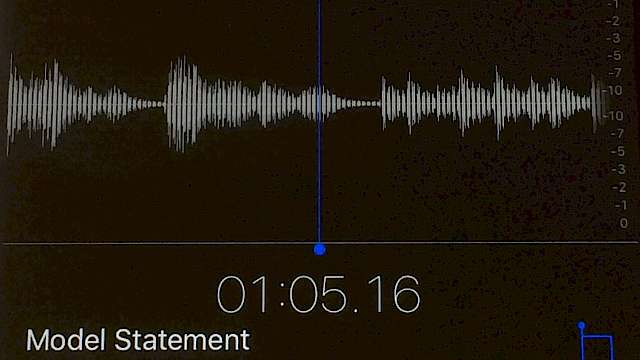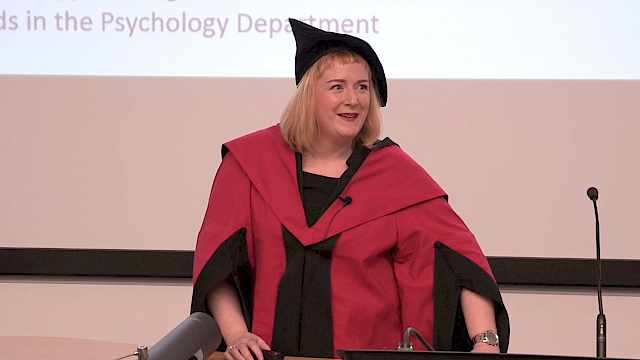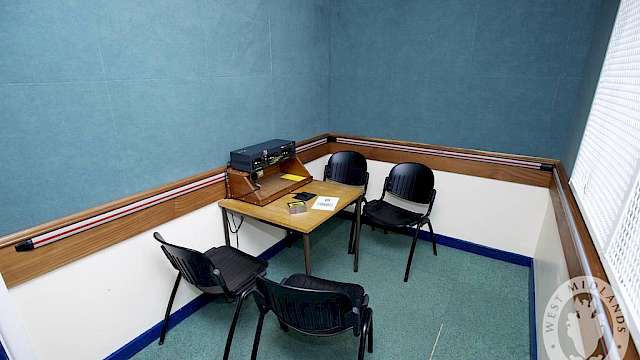
Eliciting Information
How can the nature of social and cognitive processes contribute to promoting complete recall and accurate deception detection? By examining the nature of social and cognitive processes within intelligence-gathering interactions, this Programme develops techniques that promote accurate and complete recall, while facilitating deception detection. Led by Professor Aldert Vrij at the University of Portsmouth.
Aldert Vrij – The verifiability approach
Liars include fewer details in their accounts that they think can be checked by investigators than truth tellers. This effect becomes stronger if interviewees are asked at the beginning of the interview to ‘include detail the investigator can check’ as this encourages truth tellers to include yet more verifiable details in their accounts, but not liars. Our CREST research aims to answer the following questions:
- How does the instruction to include verifiable detail affect truth tellers’ and liars’ subsequent accounts if they have already given an initial account without this instruction?
- Does a Model Statement that includes verifiable details encourage truth tellers more than liars to include verifiable details in their accounts?
Lorraine Hope – Eliciting intelligence from memory: Innovative tools, techniques and approaches
Eliciting reliable intelligence from cooperative informants relies on effective and flexible approaches to interviewing in order to cue detailed and accurate information from memory. Our research focuses on the development of theoretically-informed tools and techniques with applied value in the intelligence gathering context, e.g.:
- Testing additional components for using with the Timeline Technique (supervising Feni Kontogianni).
- Development of a protocol for assessing intelligence passed on by members of the public (ASSAIL protocol).
- Assessing memory performance under stress and duress in order to establish impact on quantity and accuracy of subsequent reports.
Becky Milne – Developing intelligence gathering methods that maximize the quantity and quality of information
In the first year we have:
- Examined the use of three different methods of interpreting interview statements; simultaneous, short consecutive and long consecutive and their relative impact on the quality and quantity of information gained from an interviewee and also on the accuracy of the interpreting itself.
- Looked at the communication process in a simulated critical incident from front-line practitioners and how information is transferred across the chain of decision makers – a case study approach.
Next steps:
- To develop a model of intelligence gathering from (a) techniques to prime memory encoding, (b) associated retrieval techniques (e.g. context), and (c) methods to assist accurate recording of the resultant information.
- To develop communication and retrieval strategies for the fire service – linked to critical incident pilot.
Feni Kontogianni – Innovative techniques for information elicitation
Doctoral research investigating how new techniques for supporting memory retrieval can lead to the elicitation of high amounts of accurate information for witnessed events.
In the first year of the PhD we found that:
- The use of innovative formats such as the Timeline Technique combined with cognitive mnemonics aids retrieval.
- The use of self-generated cues facilitates memory and enables witness-led interviews.
- Exploring how to provide support for challenging conditions at encoding of memory – what happens when one’s attention is divided?
In the next years we will examine how we can improve techniques to obtain both accurate and complete accounts through the use of a Multi-Modal Interviewing Format. The Multi-modal interviewing format combines the use of Self-Generated Cues, the Timeline Technique and verbal open-ended questions to facilitate access to different aspects of memories for repeated events.
Sharon Leal – The model statement interview tool
Interviewees have incorrect expectations about how much information they are required to give. The Model Statement (MS), a truthful detailed account unrelated to the topic of investigation, has been shown to significantly enhance the amount of detail provided and lie/truth detection, because it raises expectations about the amount of information that is required. Our CREST research aims to answer the following questions:
- How does the implementation of the Model Statement impact the cues to deceit that emerge from collective interviews?
- Does a MS that includes verifiable details encourages truth tellers more than liars to included verifiable details into their accounts?
Samantha Mann – What tactics does a smuggler use to avoid detection?
- Although speech is more revealing about deception than nonverbal behaviour, when screening large numbers of people (e.g. passengers at airports, trains or ferries), there is no option but to observe behaviour. Published research on how ‘wrongdoers’ and ‘innocents’ behave in such situations is non-existent.
- In an initial study, participants smuggled an item on a short ferry ride. After their mission they were interviewed to discover what went through their minds and what tactics they used to avoid being detected by ‘people looking for smugglers’. Each of the 52 participants were filmed discreetly on the ferry.
- Compared to when not smuggling, smuggling participants felt more nervous, controlled their behaviour more, and in particular, felt more self-conscious. Smugglers felt more conspicuous than non-smugglers. In terms of strategies there were large individual differences but commonly mentioned tactics included looking at the phone, choice of seating position (mostly away from others), acting normal and looking around.
Zarah Vernham – Collective interviewing
Previous research shows that when interviewees are questioned together, they interact and communicate more with one another when telling the truth than when lying. Hence, collective interviewing results in unique deception cues. Research examining collective interviewing is still very much in its early stages, with many questions still requiring answers. Our CREST research aims to answer the following questions:
- How does the implementation of the Model Statement impact the cues to deceit that emerge from collective interviews?
- How do differences in culture impact the cues to deceit that emerge from collective interviews?

